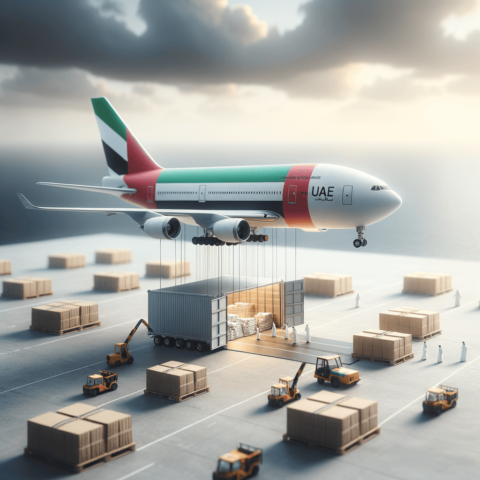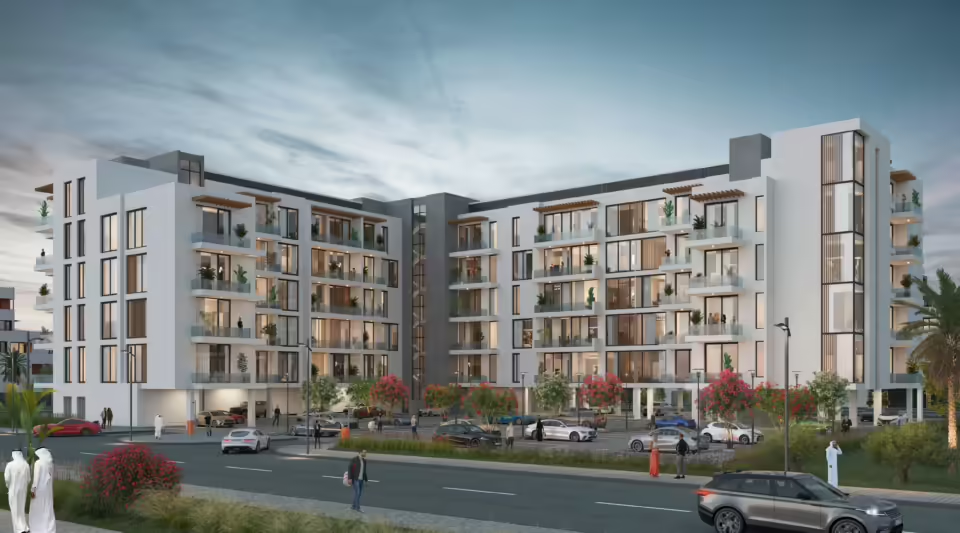
Glittering Prospects: Discovering the Riches of Dubai’s Gold Market
May 18, 2024
The Fury of Nature Hits Houston: A Wake-Up Call for Dubai’s Travelers
May 18, 2024In an act of profound global solidarity, the UAE has dispatched the first of three planes loaded with 300 tonnes of aid to flood victims in Brazil. This gesture not only underscores the country’s humanitarian spirit but also highlights Dubai’s role as a pivotal hub for tourism and international business.
Leadership in Action
Leadership in Action: Detail the leadership of UAE’s President, His Highness Sheikh Mohamed bin Zayed Al Nahyan in initiating the relief operations. Explore how his directives reflect the UAE’s commitment to global humanitarian efforts and the impact these actions have on strengthening Dubai’s reputation as a leader in international cooperation and diplomacy.
The strategic vision and compassionate leadership of UAE’s President, His Highness Sheikh Mohamed bin Zayed Al Nahyan, play a pivotal role in initiating and overseeing the country’s humanitarian relief operations. His directives are instrumental in aligning the UAE’s response to global crises, reflecting a profound commitment to humanitarian ethics and reinforcing the nation’s reputation for international solidarity. Under his leadership, the UAE swiftly mobilized resources and aid towards Brazil, showcasing an unparalleled readiness to support those in need.
Sheikh Mohamed bin Zayed’s approach embodies a blend of pragmatism and empathy. By personally overseeing the relief efforts, he ensures that the operations are not only efficient but also resonate with the UAE’s long-standing values of generosity and benevolence. His actions set a precedent for other nations, emphasizing that global challenges require cohesive and collaborative responses.
His leadership extends beyond immediate relief; it nurtures enduring global partnerships. By consistently showing up in times of crises around the world, the UAE, under his guidance, has fortified its standing in international diplomacy. This proactive stance enhances Dubai’s reputation as a hub for global cooperation, making it a magnet for both business and tourism.
Such dynamic leadership not only brings international acclaim but also fosters local opportunities. The significant global attention drawn by Sheikh Mohamed bin Zayed’s initiatives invariably spotlights Dubai, leading to increased interest from international businesses and tourists. In essence, his decisive and compassionate leadership not only underpins the UAE’s humanitarian credentials but also propels Dubai onto the world stage as a leader in global cooperation and diplomacy.
UAE’s Disaster Response Mechanism
UAE’s Disaster Response Mechanism: The UAE’s disaster response system, orchestrated by the Minister of State for International Cooperation, Reem bint Ebrahim Al Hashimy, epitomizes a meticulous and proactive approach to global emergencies. This robust structure is designed to vigilantly monitor potential crises around the world using advanced technology and real-time data analytics. Through a network of local and international agencies, the system ensures that resources and aid are deployed with precision and speed.
At the heart of this mechanism is a comprehensive strategy that involves pre-identified disaster response protocols and pre-positioned relief supplies. These measures are complemented by dedicated teams that include medical professionals, engineers, logistics experts, and humanitarian workers. When a natural disaster strikes, this elaborate blueprint allows for immediate action, ensuring that aid reaches the affected regions without delay.
Reem bint Ebrahim Al Hashimy’s leadership embodies a blend of administrative acumen and humanitarian compassion. Her coordination efforts extend beyond mere shipment of goods; they involve assessing needs on the ground, aligning with international humanitarian standards, and ensuring that relief operations seamlessly integrate with local efforts. This meticulous planning and execution significantly elevate the global perception of the UAE as a dependable and swift responder to crises.
Moreover, the UAE’s efficient disaster response system serves as a potent diplomatic tool. By showcasing its capability to offer pivotal support during global emergencies, the UAE strengthens its international alliances and reinforces its commitment to shared global values of solidarity and generosity. Such proactive humanitarian engagement not only enhances the UAE’s diplomatic relations but also boosts Dubai’s status as a dependable global partner poised at the intersection of compassion and capability.
Impact on Tourism and Business in Dubai
The UAE’s proactive global humanitarian role serves as a magnet for tourists and business investors who place high value on corporate social responsibility (CSR) and political stability. Dubai, in particular, benefits immensely from this phenomenon. As the UAE’s international aid efforts, spearheaded by the Minister of State for International Cooperation, Reem bint Ebrahim Al Hashimy, gain traction, they burnish the UAE’s image as a principled player on the global stage, enhancing its reputation far beyond the business realm.
When tourists perceive a country as compassionate and responsible, they feel safer and more inclined to visit. This concept, often referred to as “tourism diplomacy,” underscores how humanitarian endeavors can indirectly fuel the tourism sector. Dubai has capitalized on this through its expansive marketing campaigns that showcase its humanitarian outreach. The surge in tourism translates to greater occupancy rates in hotels, increased foot traffic in retail spaces, and robust performance in the hospitality sector.
Moreover, investors and multinational corporations increasingly seek stable environments with robust CSR credentials for their business operations. The UAE’s humanitarian efforts reassure them of the nation’s stability and responsible governance. This sense of security encourages investments in sectors such as real estate, technology, and financial services in Dubai, thus broadening the city’s economic base.
Dubai’s strategic positioning as a global humanitarian hub amplifies its attractiveness. With state-of-the-art logistics and transport infrastructure, Dubai offers unparalleled connectivity, making it a natural nexus for humanitarian aid. This logistical advantage not only facilitates timely disaster response but also enhances trade and business connectivity, fostering increased economic activity.
Ultimately, by intertwining humanitarian efforts with economic strategy, the UAE creates a virtuoso cycle where goodwill translates into tangible economic benefits, boosting both tourism and business investment in Dubai.
Conclusions
The UAE’s swift humanitarian response to the crisis in Brazil not only underscores its role as a pivotal actor in global humanitarian efforts but also reinforces Dubai’s stature as an attractive destination for both tourists and business investors, rooted in a tradition of empathy and strategic international cooperation.





